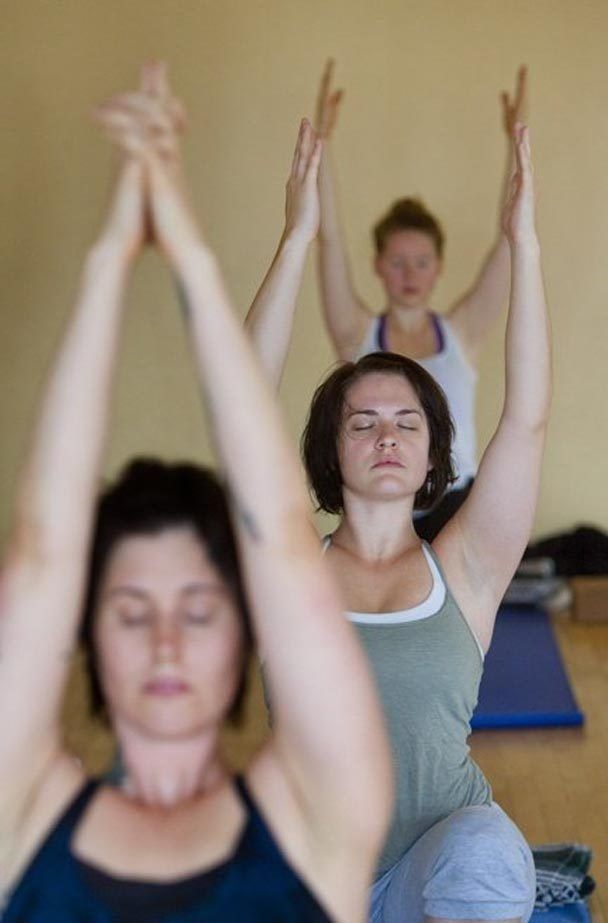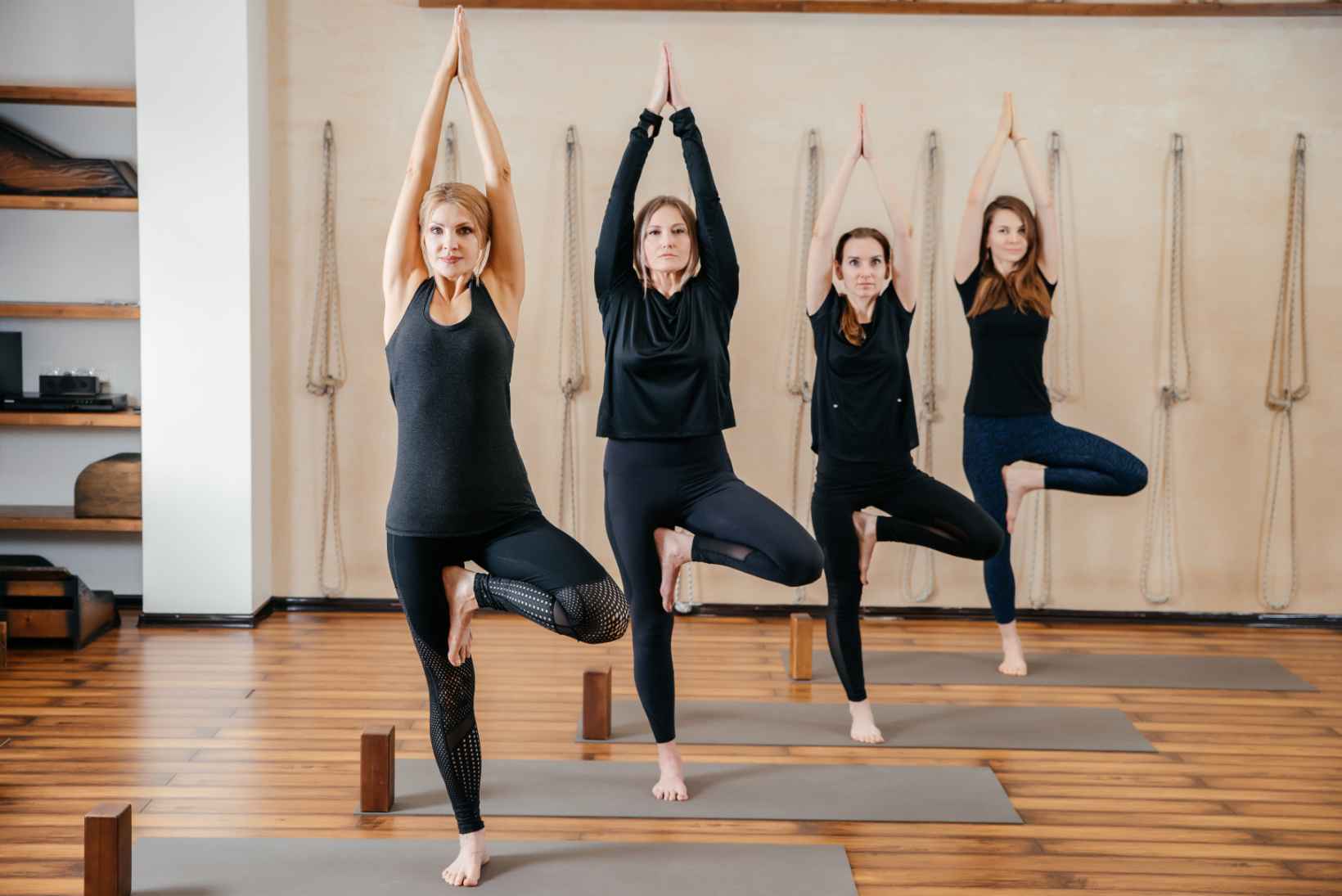Introduction: Why the Controversy Exists
The practice of yoga has gained immense popularity worldwide, recognized for its physical, mental, and spiritual benefits. It combines physical postures, breathing exercises, and meditation techniques, offering a holistic approach to well-being. Despite its widespread acceptance, yoga remains a contentious topic within certain Christian circles. Some Christians view yoga as incompatible with their faith, even considering it a sin. This perspective stems from various theological, historical, and cultural reasons, which we will explore in detail.
Understanding why yoga is seen as a sin in Christianity requires delving into doctrinal beliefs, the historical origins of yoga, and the potential spiritual conflicts that arise from integrating these two practices. The debate often revolves around whether yoga’s spiritual roots and practices conflict with Christian teachings. It’s also important to note that opinions on this matter vary widely among Christians, with some embracing yoga as a neutral or beneficial practice, while others reject it entirely.
Hence, exploring the complexities and nuances of this issue can provide a more comprehensive understanding of why some Christians perceive yoga as sinful. By examining different viewpoints, theological concerns, and scriptural interpretations, we can gain insight into the heart of this controversy.
Historical and Theological Perspectives
The Origins of Yoga
Yoga’s origins trace back thousands of years to ancient India, where it was developed as a spiritual discipline within Hinduism. The term “yoga” itself is derived from the Sanskrit word “yuj,” meaning to yoke or unite, symbolizing the union of the individual soul with the divine. Hindu scriptures, such as the Vedas and Upanishads, contain early references to yoga practices intended to achieve spiritual enlightenment and liberation (moksha).
As a historical and spiritual practice, yoga encompasses various paths and disciplines, including Hatha Yoga (physical postures and breathing exercises), Raja Yoga (meditation), and Bhakti Yoga (devotion). The goal of these practices is often spiritual growth and union with the divine, aligning one’s actions, thoughts, and desires with higher consciousness.
The spiritual dimension of yoga is deeply embedded in its practices and philosophies. The physical postures (asanas) and breathing exercises (pranayama) are traditionally seen as preparatory steps for deeper meditation and spiritual awakening. In essence, yoga aims to transcend the physical and connect with the spiritual, making it a holistic discipline beyond mere exercise.
Given these spiritual roots, some Christians see a fundamental incompatibility between yoga and Christian teachings. They argue that yoga’s spiritual goals and practices are inherently based on Hindu beliefs and thus conflict with Christian doctrines. This perspective forms the basis of viewing yoga as a sin within Christianity.
Christian Doctrinal Concerns
The primary doctrinal concern for Christians regarding yoga lies in the first commandment, which emphasizes worshiping only one God. In Exodus 20:3, it states, “You shall have no other gods before me.” This commandment underscores the exclusivity of worshiping the God of Christianity, prohibiting any practice that may involve reverence for other deities or spiritual systems.
Yoga’s spiritual roots in Hinduism, with its pantheon of gods and philosophical concepts like karma and reincarnation, present a theological conflict for some Christians. They worry that engaging in yoga, even as a physical exercise, might inadvertently involve elements of Hindu worship or spiritual practices. This concern extends to chanting mantras or meditative practices that may invoke Hindu deities or concepts.
Additionally, some Christian leaders emphasize the importance of discernment and caution when adopting practices from other religions. They argue that even if yoga is practiced purely as an exercise, the underlying spiritual aspects cannot be entirely separated from its physical forms. This view is based on the belief that spiritual influences resonate in all aspects of yoga, potentially leading Christians away from their faith.
Another doctrinal issue relates to the concept of spiritual warfare, mentioned in Ephesians 6:12: “For we do not wrestle against flesh and blood, but against the rulers, against the authorities, against the cosmic powers over this present darkness, against the spiritual forces of evil in the heavenly places.” Some Christians believe that engaging in practices rooted in another religion might expose them to spiritual influences contradictory to Christian teachings.
These theological concerns lead some Christians to view yoga as incompatible with their faith, potentially leading them astray from their commitment to Christian doctrines. This perspective is strengthened by the belief that Christians should avoid any practice that might conflict with their exclusive worship of God.
Psychological and Spiritual Aspects
Aside from theological concerns, psychological and spiritual aspects also contribute to the controversy surrounding yoga in Christianity. Some Christians worry that the meditative practices in yoga might open individuals to spiritual influences not aligned with their faith.
Diverse Opinions Within Christianity
Supportive Viewpoints
While some Christians view yoga as a sin, others adopt a more supportive perspective, recognizing the benefits of yoga and its potential for enhancement of physical and mental well-being. These Christians argue that yoga can be practiced in a way that aligns with Christian values and does not involve any spiritual conflict.
Supportive viewpoints emphasize the physical benefits of yoga, such as improved flexibility, strength, balance, and stress reduction. These Christians view yoga as a valuable form of exercise that promotes overall health and wellness. By focusing on the physical aspect of yoga, they believe it is possible to divorce it from its spiritual roots.
Moreover, some Christians integrate yoga into their faith by incorporating Christian themes and scriptures into their practice. This approach, known as “Holy Yoga” or “Christian Yoga,” involves using Christian music, scripture, and prayer during yoga sessions. Practitioners view this as a way to honor their faith while enjoying the physical benefits of yoga.
For example, a Christian meditation practice might include prayers and reflections on Bible verses while performing yoga postures. This approach encourages a Christ-centered form of yoga that seeks to deepen the practitioner’s faith and spiritual connection with God. Proponents argue that this integration makes yoga a spiritually enriching practice that aligns with Christian beliefs.
Supportive viewpoints highlight the importance of discernment and intentionality when practicing yoga. They argue that by approaching yoga with a Christ-centered mindset, Christians can benefit from the practice without compromising their faith. This perspective emphasizes the potential for yoga to be a neutral or even positive addition to a Christian lifestyle.
Neutral Stances
In addition to supportive viewpoints, some Christians adopt a neutral stance on yoga, viewing it as neither inherently sinful nor explicitly beneficial to their faith. These Christians see yoga as a personal choice and emphasize individual discernment in deciding whether to practice it.
Neutral stances acknowledge the cultural and historical roots of yoga but emphasize that the practice can be adapted and secularized. They argue that yoga can be pursued purely for its physical and mental health benefits, without delving into its spiritual dimensions. For these Christians, yoga is akin to other forms of exercise, such as Pilates or aerobics, with no inherent spiritual connotations.
Moreover, neutral viewpoints stress the importance of personal autonomy and respect for diverse beliefs. They recognize that different individuals may have varying experiences and perspectives on yoga, and thus refrain from making broad judgments. By doing so, they avoid any spiritual practices or rituals that might conflict with their faith. This approach encourages Christians to engage in yoga while maintaining a clear distinction between physical exercise and spiritual practices.
Neutral stances emphasize the importance of mindful and intentional participation in yoga. They advocate for an informed and balanced perspective, recognizing the diversity of opinions within the Christian community. This approach encourages respectful dialogue and understanding, allowing individuals to make choices that align with their personal beliefs and values.
Conclusion: Navigating the Complexity
The relationship between yoga and Christianity is complex, with diverse opinions and perspectives within the Christian community. Some Christians view yoga as a sin due to its spiritual roots in Hinduism and potential conflicts with Christian doctrines. Theological concerns, psychological aspects, and historical origins contribute to this perception.





